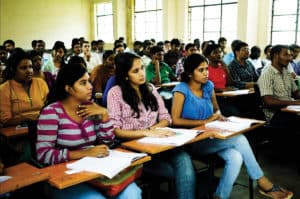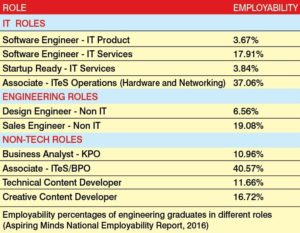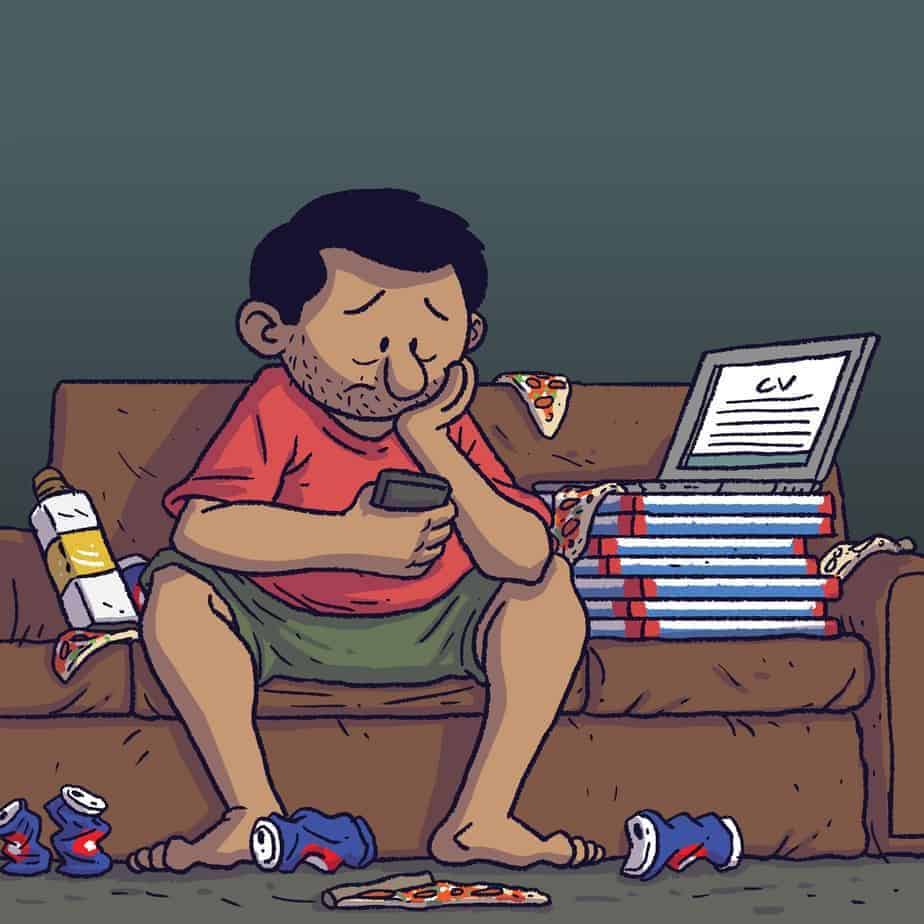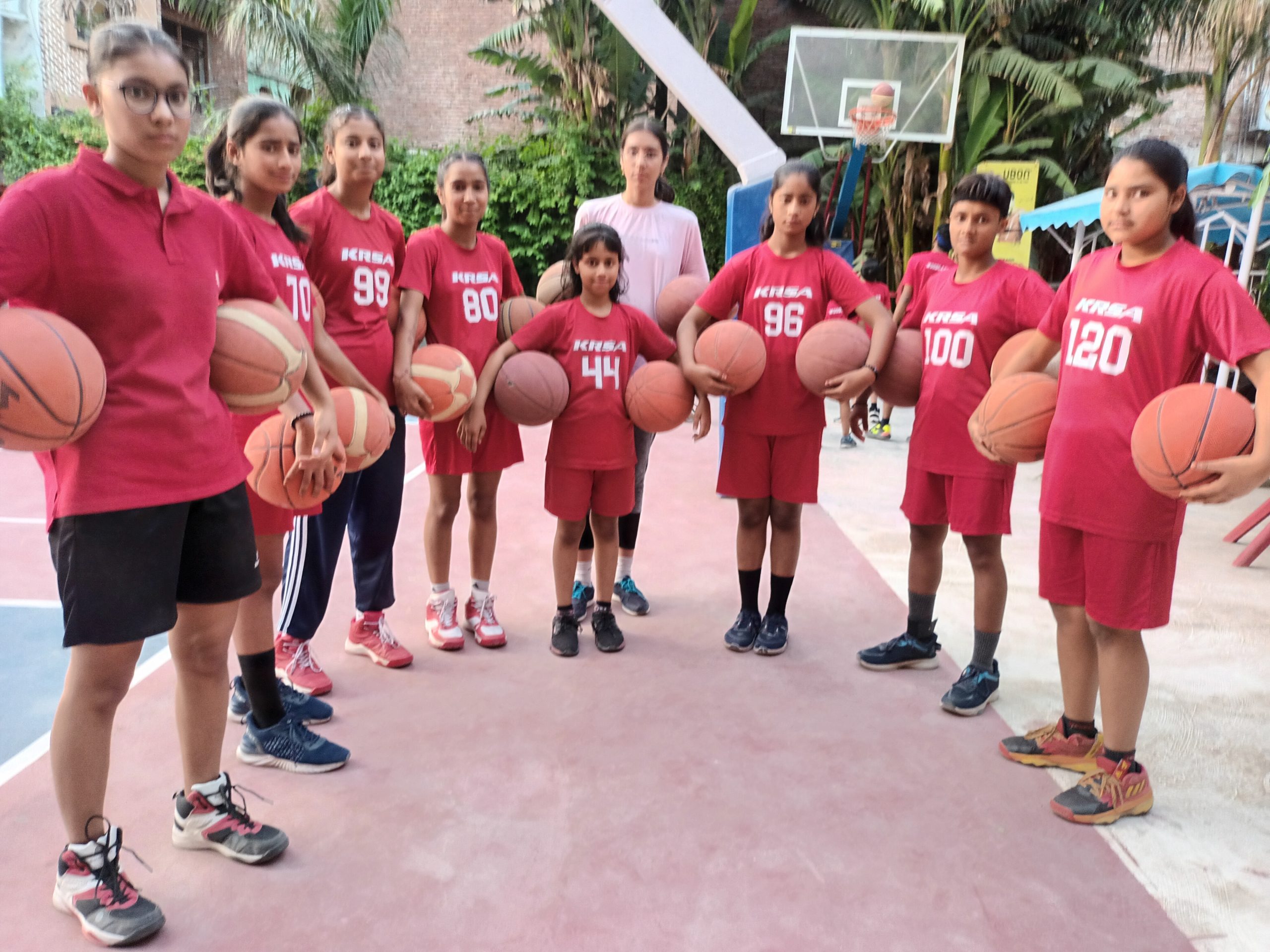With substandard engineering colleges mushrooming across the country, students are finding it increasingly difficult to get jobs. Many end up turning to other professions or prepare for competitive exams
What do parents first say when their child is born? “Hope he/she becomes an engineer or a doctor?” This might sound like a ludicrous exaggeration but it is the sad reality of many middle class Indian homes. Even though multiple career options are available, parents and students are perpetually inclined towards two professional fields — medical and engineering. What is with this fixation? A good salary package and a reputable job, one might suggest. But what happens when a study reveals that only 7% engineering graduates are employable?
Despite the Indian engineering sector witnessing a remarkable growth in recent years, an alarming trend that has emerged simultaneously has put the future of thousands of students in jeopardy. An oversupply of engineers, without a proportionate rise in job creation and skill development has left many without jobs. Private engineering institutes, which cost a king’s ransom, have been proliferating but they are hardly able to impart the requisite knowledge or ensure campus placements.

Last year, Aspiring Minds (employability assessment company) claimed that 95% of the engineers in the country were not employable. The main reason for this is that the students who have done their engineering from private institutes are not able to meet the skill requirements of companies.
Also, these institutes do not conduct proper entrance exams to test the aptitude of the students. But it is not only about the students — even when they are diligent and suitable for the field, private colleges are not able to hone their skills and sharpen their minds with practical training.
The numbers are staggering — according to the HRD Ministry, India has 6,214 engineering and technology institutes, with almost 1.5 million students graduating every year. Out of these, 60% remain unemployed according to the All India Council for Technical Education. Reports have also revealed that only 15% of the 3,200 institutions offer courses that are recognised by the NBA (National Board of Accreditation).
In 2017, the HRD Ministry had come up with a proposal to introduce the National Entrance Examination for Technical Institutes (NEETI) from 2018 to provide a single entrance platform in a bid to revamp technical education. But the students are still struggling with unemployment and a lot more steps need to be taken to not just improve their academic knowledge but also to enhance soft skills, making the students better equipped for jobs.
Prateek Jain, who graduated from IIT Kanpur in 2018, considers himself fortunate enough to be among the 5,000 students who get into the top IITs every year. They also get hefty salary packages and 100% campus placements.
He says, “Lectures by world-class professors who clear all your doubts very patiently and believe in running after knowledge, instead of attendance or grades. You get hands-on experience with the plethora of lab equipment you get for your practical understanding. IITians also have the luxury to ban whichever company they want to.” Jain recalls the time when his Training and Placement Office banned a prominent electronic commerce company because they recruited three months after hiring the candidates.
On the other hand, an MNC provided offer letters to students in a college one year after they were hired and this was allowed to happen the next year too. From professors holding an advanced research degree from foreign universities, to constant but undefined study material, there are several reasons that go into making IITians successful techies. In most cases, an IITian can find a well-paying job whenever he/she wants. But the non-IITians run the risk of not getting another opportunity, if their initial venture fails.

Talking to the Patriot, BR Jain, Director of the Engineering Council of India (ECI), blames imported technologies. “We don’t have an adequate number of Indian industries and MNCs are also laying off engineers. Not just this, everyone is aware of the problem of substandard engineering. If you are a Delhiite graduating with 60% marks, it is easier for you to pursue engineering than to go for English Honours,” he says, adding, “Hardware industry has to develop, along with the software industry, to create more jobs for engineers.”
While talking about the steps taken by the ECI to improve the current employment scenario, Jain says, “Since students hardly gain anything from the industrial training, apart from certificates, ECI has tied up with the All India Council for Technical Education to conduct the National Proficiency Evaluation Test (NPET) for graduates and diploma holders who have completed the third year or are in their final year of graduation.” Candidates will be assessed for internship on several grounds — candidates scoring more than 60% would be expected to undergo a month-long orientation training, those scoring less than 60% but more than 40% would be advised to undergo the complete training of six months and those scoring less than 40% may reappear for the next NPET.
The jury consisting of an industrialist, a member of the Computer Society of India (CSI) and a mentor will judge the skills of the candidate by critically analysing their report, submitted after the completion of training. They tried to set up the program in a few colleges but the faculty resisted, saying that it would form a negative public impression of the college. So, in order to enhance the practical and technical skills of a candidate, either the institutes have to take up the initiative or let the ECI and AICTE do it their way. They will have to hone the students to make them employable.
Parental Psyche
“A profession which promises a reputed and secured job to my child is the ideal profession”— this is what almost every Indian parent thinks.
“We took a Rs 4 lakh loan, thinking that my son will repay it immediately after becoming an engineer,” says Sangeeta Aggarwal, a primary school teacher whose son is currently working in bank after graduating from a reputed AKTU-affiliated college in Ghaziabad. Not only was he a school topper, Harshal’s name was always in the list of top 10 students of his college, yet he couldn’t get a job.

“I got to know there is no scope of getting campus placement if you are from electronics and communication background, when no EC company showed up at our campus,” says Harshul. He was stuck in the vicious cycle of unemployment and depression, coming out of which wasn’t easy. After a few months, he pulled himself together and began preparing for banking exams, without any coaching, as he simultaneously working as a school teacher.
After a year he got a call from Infosys and at the same time he also cracked the Oriental Bank of Commerce exam. He chose the latter.
Out of 1,55,158 students only 18,138 qualified for top tier colleges (IITs, NITs, VIT, BITS) this year. This was a massive drop as last year, 61,000 students qualified, which explains why there were more admissions in the lower tier colleges. Although there has been a dip (of 8-9%) in the low tier engineering college intakes from 2014-18 but it is not because of the shift of interest, rather it is due to the closure of 200 substandard universities by AICTE.
So, it is high time that Indians realise it is not the quantity but quality that matters.





